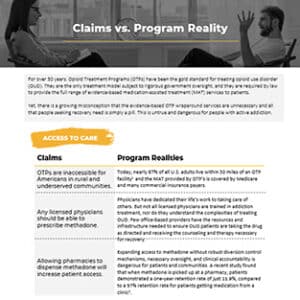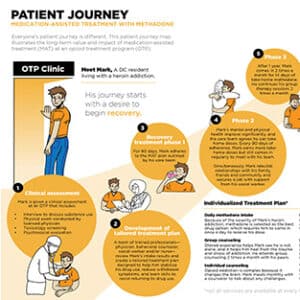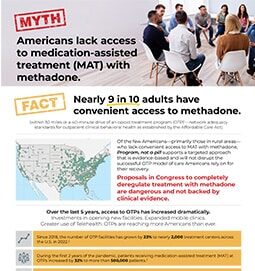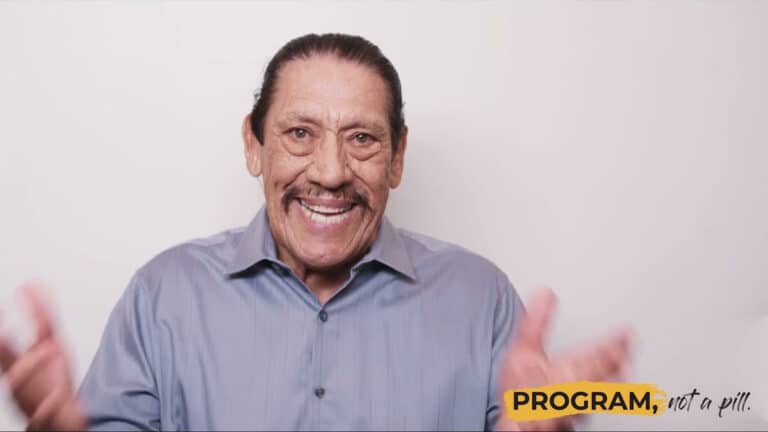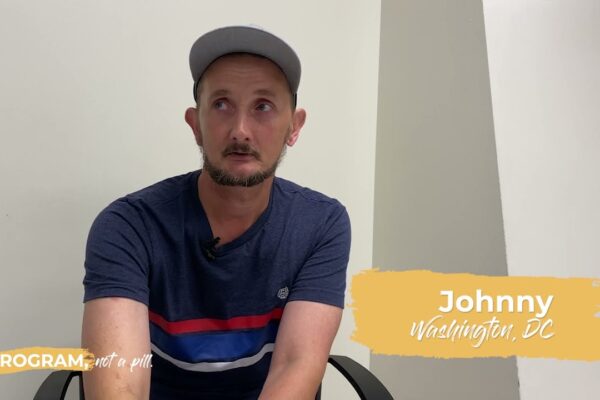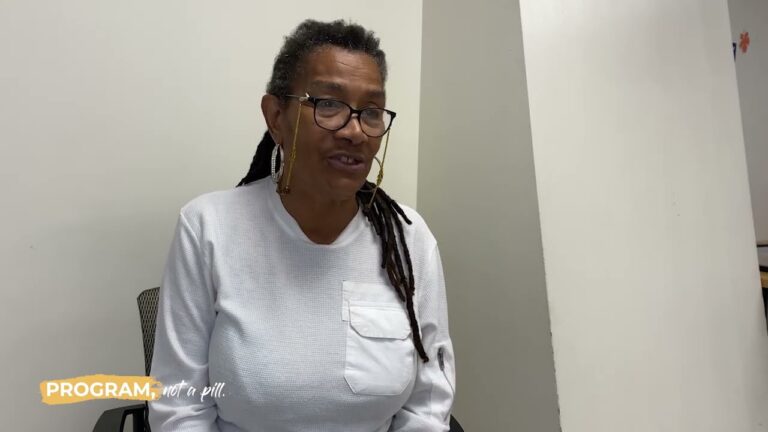
Medication-assisted treatment
is more than just medicine.
What is Program, not a Pill?
Program, not a pill is a campaign that brings the community together to support and expand access to patient-centered, evidence-based treatments for opioid addiction and elevates the whole-patient standard of care. To adequately treat people with opioid use disorder (OUD), they need a Program, not a pill. Medication-assisted treatment is that program.

More than 2.7 million people in the US
are living with an opioid use disorder.1,2,3,4,5
Understanding Medication-Assisted Treatment
Medication-assisted treatment (MAT) is used to treat opioid use disorders (OUD)—addictions to heroin, fentanyl, prescription opioids like Vicodin and OxyContin. Opioid use disorders are complex, chronic conditions that change a person’s brain chemistry, making them physically and psychologically dependent. MAT—often provided by an opioid treatment program—is the most effective treatment approach for getting people into long-term recovery.
The three necessary components of MAT:

FDA-approved medication

Counseling, behavioral therapies and other psychosocial services

Coordination of treatment with other medical and psychological needs
More than 1.27 million Americans are receiving medication-assisted treatment (MAT), a 142% increase from 2016-20183. It’s proven to save lives, and everyone who wants to recover from OUD should have access to MAT.

Medication-assisted treatment (MAT) is the use of medications, in combination with counseling and behavioral therapies, to provide a “whole-patient” approach to the treatment of substance use disorders. It is also important to address other health conditions during treatment.6
Definition used by the Department of Health and Human Services’ Substance Abuse and Mental Health Services Administration (SAMHSA)
Download Resources
We’ve created 3 key resources to help illustrate the importance of both components (medication and counseling) included in MAT.


Without a drug recovery program, I’d be lost. I’ve been clean and sober for 54 years… without counseling, without support the addictive personality takes over.
Danny Trejo, actor and drug counselor
Patient Videos
Danny Trejo Explains Real Opioid Addiction Treatment
Actor and MAT advocate Danny Trejo shares his experience with heroin and why he is now an advocate for helping people with OUD.
Johnny’s Recovery Journey
Johnny describes his struggle with addiction and how his OTP has improved his quality of life.
1 https://www.ncbi.nlm.nih.gov/books/NBK553166
2 https://www.hrsa.gov/opioids
3 https://www.hhs.gov/opioids/about-the-epidemic/opioid-crisis-statistics/index.html
4 https://www.ncbi.nlm.nih.gov/books/NBK448203/
5 https://www.cdc.gov/dotw/opioid-use-disorder/index.html#:~:text=impairment%20and%20distress.-,A%20diagnosis%20of%20OUD%20is%20based%20on%20specific%20criteria%20such,States%20report%20suffering%20from%20OUD
6 https://www.samhsa.gov/medication-assisted-treatment/medications-counseling-related-conditions#counseling-behavioral-therapies

